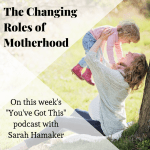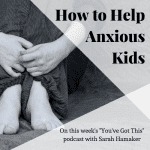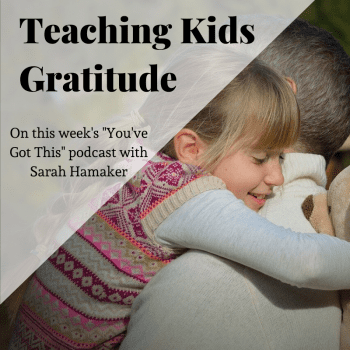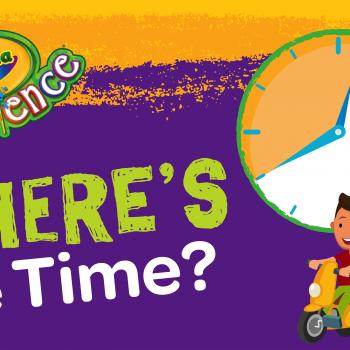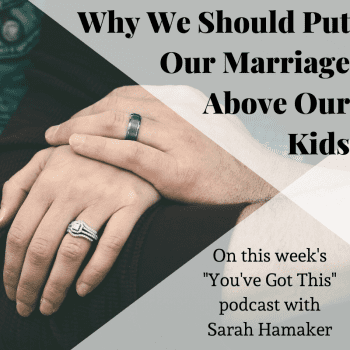
I stayed home from school the day Dwayne* left our home. As a young teen, I had fallen in love with the baby, who arrived at our house only a few days old. His soft brown hair and big blue eyes had captured my heart over the months we cared for him. No one had told me it would be this hard to let him go, even though he was going to a forever home with his new adoptive parents. No one had prepared me for the pain and sorrow of losing a baby brother. It didn’t matter that Dwayne wasn’t related by blood to my family—he was family, even for a short time.
Throughout my teenage years, I had many more opportunities to love—and let go—of the foster children my parents welcomed into our home. I wasn’t aware that during the early 1980s, when my parents began fostering, 262,000 children ended up in foster care in the United States. I only knew Kate and Belinda, Jonathan and Mary Jane, the twins Jessica and Jesse, the trio of brothers who came every weekend one summer, and a host of others whose names I’ve forgotten, but whose faces I never can.
It wasn’t easy being a foster sister to these kids from heartbreaking backgrounds, who often had deep hurts and unseen trauma that would explode all over my life and home for seemingly no reason. During those years, I had toys, books, clothing, and personal stuff destroyed or stolen. I shared my things, my home, my mom and my dad with kids who didn’t want to be in our home.
But even as I struggled at times with the chaos having a full house created, I watched my parents love these kids without expecting anything in return and enfold them into the fabric of our family for however long they lived with us. Over three decades, my parents welcomed more than 40 kids into their home, and even adopted boy-girl twins they had fostered who were 14 years younger than me.
Fast-forward to the fall of 2018, when my husband had a chance encounter with a representative from UMFS, a Virginia nonprofit foster/adoption agency. Suddenly, he was interested in becoming foster parents, something I had talked with him about off and on since we married in 2000. With our four kids between the ages of 10 and 16, now seemed like a good time to foster.
The need for foster families is once again rising. In 2017, 443,000 U.S. children were in foster care in 2017, up from a recent historic low of 397,000 in 2012, according to data on ChildTrends.org. What’s behind that increase? One major reason is the growing opioid epidemic has pushed more kids into a system struggling to keep up with the influx.
“Our system of child welfare is broken,” said MereAnn Reid, a child and family therapist in Portland, Oregon, who specializes in adoption. “More importantly, our social fabric is frayed. When children are struggling, we’re all struggling.”
More foster families are needed to help these vulnerable children, but often, families have many questions about what fostering is—and isn’t.
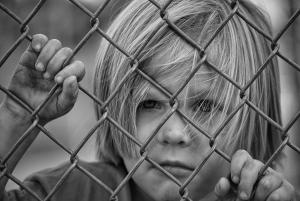
The Questions
While we’re new along this journey, having welcomed our first foster daughter, Maddison, into our home this May, we’re already finding out that being foster parents is challenging and stressful yet so rewarding and important. But that’s not to say we didn’t have questions about the process, the system, and the kids. In fact, when we were going through foster parent training, one question my husband had was “Am I inviting chaos into our home?” (The answer? We’re inviting “opportunity” into our home.)
“People want to know what kind of behaviors the kids will have and what kind of support they will have dealing with those behaviors,” said Dr. Beth Robinson, a licensed professional counselor in Lubbock, Texas, and co-author of Protecting Your Child From Predators: How to Recognize and Respond to Sexual Danger. Robinson has been a foster and adoptive parent. “In addition, they frequently want to know about interactions with biological parents and how the court system works.”
Dr. John DeGarmo with The Foster Care Institute who has fostered dozens of children said he often hears four questions from people asking about fostering:
- Are foster parents in it for the money? (Um, yes, you receive money, but not that much.)
- Can I chose the age of the child I want to foster? (In our experience, you can put in age parameters.)
- Will it hurt my own biological children? (In my experience, bio kids will be fine.)
- Are the kids bad kids? (It’s not the child’s fault he or she ended up in the system.)
Frequent questions Reid hears centers around how long the kids will be in the home and how to handle the grief of kids leaving. “Many prospective foster parents also want to know how much contact they’ll have with the biological parents and what kind of support the child will need for transitions, visitation, and settling in,” she said.
All of these are good questions to ask the numerous private and public foster care agencies, who often hold informal information nights to learn more without signing on the dotted line.
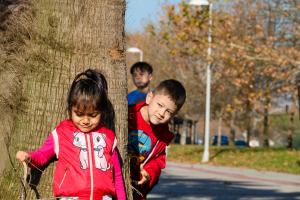
The Hesitation
Why don’t more families volunteer to foster? For one, the amount of paperwork and approvals can be overwhelming. “The foster care system requires that foster parents open up their homes and lives in a way that can feel invasive to the parents,” Dr. Robinson said. “These are case workers, court appointed special advocate (CASA) workers, attorneys, counselors, all kinds of therapists, etc., who are in and out of foster homes.”
We had to fill out more than a dozen forms, submit to background checks (for us and our teenage daughters), get fingerprinted, have medical checkups (for every family member, including our cats), have a home inspection, and talk about our parenting styles to numerous people. That’s all in addition to attending extensive training. Since we’ve had Maddison, we’ve met a dizzying array of people connected with her case: two different Virginia Department of Social Services case workers, UMFS case worker, CASA worker, Child Find personnel, and daycare personnel. That’s a lot of people to keep straight in a short amount of time—and many come into our home and ask personal questions about Maddison’s care.
In addition, families often express misgivings about “working with an unwieldy bureaucratic system,” Reid said. “Typically, foster parents only get snippets of the story that led to children coming into care, and summaries that make it into the child welfare record are pretty cut and dried without regard to the reasons and context leading a family to struggle in parenting their children.”
This is certainly true of all the kids my parents fostered, and of our own foster daughter. We only get part of their story in often very cut-and-dried language, but that’s okay because we don’t need to know the whole story in order to love and care for these kids.
The comment Dr. DeGarmo hears the most about why people are unwilling to become foster parents is “It would hurt too much to say goodbye.” “As one who has cared for over 50 children in my own home the past 15 years, my response is this: That’s a good thing. It is supposed to hurt. Your heart is supposed to break,” he said. “As foster parents, we might be the first adults who have ever loved the child in a healthy and unconditional fashion—and we might be the only adults who will ever do so. So when the child leaves our home and our family, our hearts should break. After all, we’ve given all of our hearts and love to a child in need.”
In my own experience, it is very hard to love a child for a brief time, then say goodbye to the child. So yes, your heart will break, and you will feel sad when a child leaves your home. But giving a child a safe, nurturing place to stay during a traumatic movement in that child’s life is a precious gift.
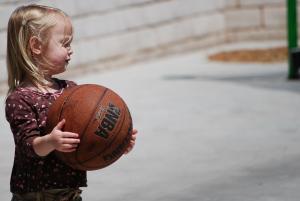
The Help
Not everyone can foster, and that’s okay. We all have different family situations and circumstances that make fostering difficult or impossible. But if you are remotely interested, attend an informational meeting on fostering with a public or private agency. This is a low-stake way to find out more about the process and that particular agency.
For those who know fostering isn’t for them, you can still support foster children and foster families.
- Respect their privacy. There’s much we can’t share about our foster daughter with anyone outside of her case workers—and there’s much we don’t know. So when a foster parent doesn’t provide detailed information, don’t press.
- Adjust your expectations. I remember that many of the kids and teenagers who stayed with my parents had never eaten a meal together as a family. Sometimes, they’d never had a bed of their own or even toys. We can’t expect a child to know what to do when the child has no experience to fall back on. When family and friends offer support, instead of condemnation, to foster parents as they help a foster adjust to their new surroundings, it can make the transition on everyone easier.
- Offer something concrete. Don’t say, “What do you need?” because often, we don’t know. But when you say, “May I bring over some clothes that might fit your new foster daughter?” that I can answer with an affirmative, “Yes, please.” We’ve had several people ask if they could drop off age-appropriate toys and clothing, which has been very welcomed in the days after our foster arrived.
- Overlook misbehaviors most of the time. In many ways, fosters are just like normal kids. They want to celebrate birthdays and play soccer and do well in school. But because they’ve experienced trauma, which can manifest in a variety of behavioral problems, they often don’t react well when triggered. And we often don’t know what will trigger an outburst. Allowing the foster family space and privacy to deal with tantrums, then not holding such exhibitions against the child, will go a long way toward helping the child heal.

The Bright Side
It’s true that the rewards of fostering are the intangibles. We will likely never know the impact of our time with a child, but that’s not why we foster. We foster not to get but to give without expecting anything in return. “Being a foster parent is the most difficult challenge you will ever experience—and one of the most rewarding relationships you will ever experience,” said Dr. Robinson. “You will love fiercely in ways you never dreamed up and help children deal with the unimaginable, but ultimately, you see children heal and become healthy emotionally.”
We’ve seen this already with Maddison in the two months she’s been with us. She’s learned our routines, has adjusted well to daycare, and has developed a good sleep schedule. That’s not to say there haven’t been challenges. Maddison has a love-hate relationship with our cats (loves to chase them) and it’s been difficult to learn how to communicate with her at times.
One recent weekend, we took a day trip to visit my extended family, which meant lots of new people for Maddison to meet—an event that overwhelmed the preschooler so much that she had not one, not two, but more than three epic tantrums complete with flailing and shrieking. We did our best to calm her and my relatives were all understanding, but it was a rather stressful day overall.
Stopping at a Panera on the way home for a quick dinner, Maddison—who has some language challenges—leaned over, put her head on my shoulder, and said, “Aunt Sarah, I love you.” She then said the same thing to my husband.
Yes, it had been a very difficult and emotionally draining day for all of us. In that moment, as I blinked back tears, I was reminded with the force of a three-year-old’s love that what we were doing mattered. We cannot single handedly stem the tide of abuse and poverty and bad decisions that push kids into the system, but we can make a difference in the life of this one child.
“We are changing lives while our own lives are being changed,” Dr. DeGarmo pointed out. “There is a good chance that in the future, the foster child we cared for might not remember our names or our faces. But for so many children in foster care, each foster child who comes through our homes will remember one thing: That for a period in his life, he was loved, and some day down the road, he will blossom into something better because of it.”
*All names of foster children have been changed to protect their identities.

